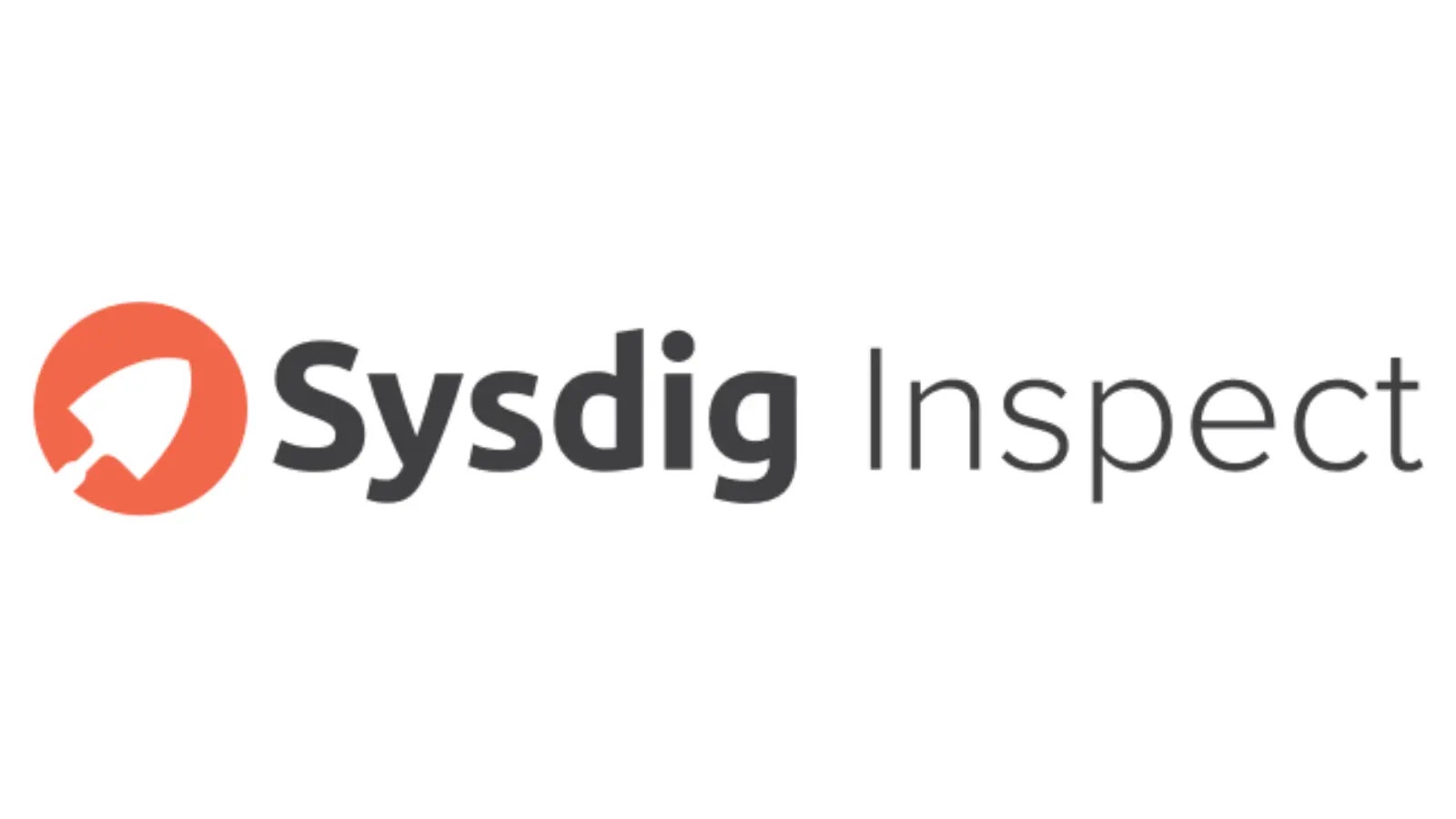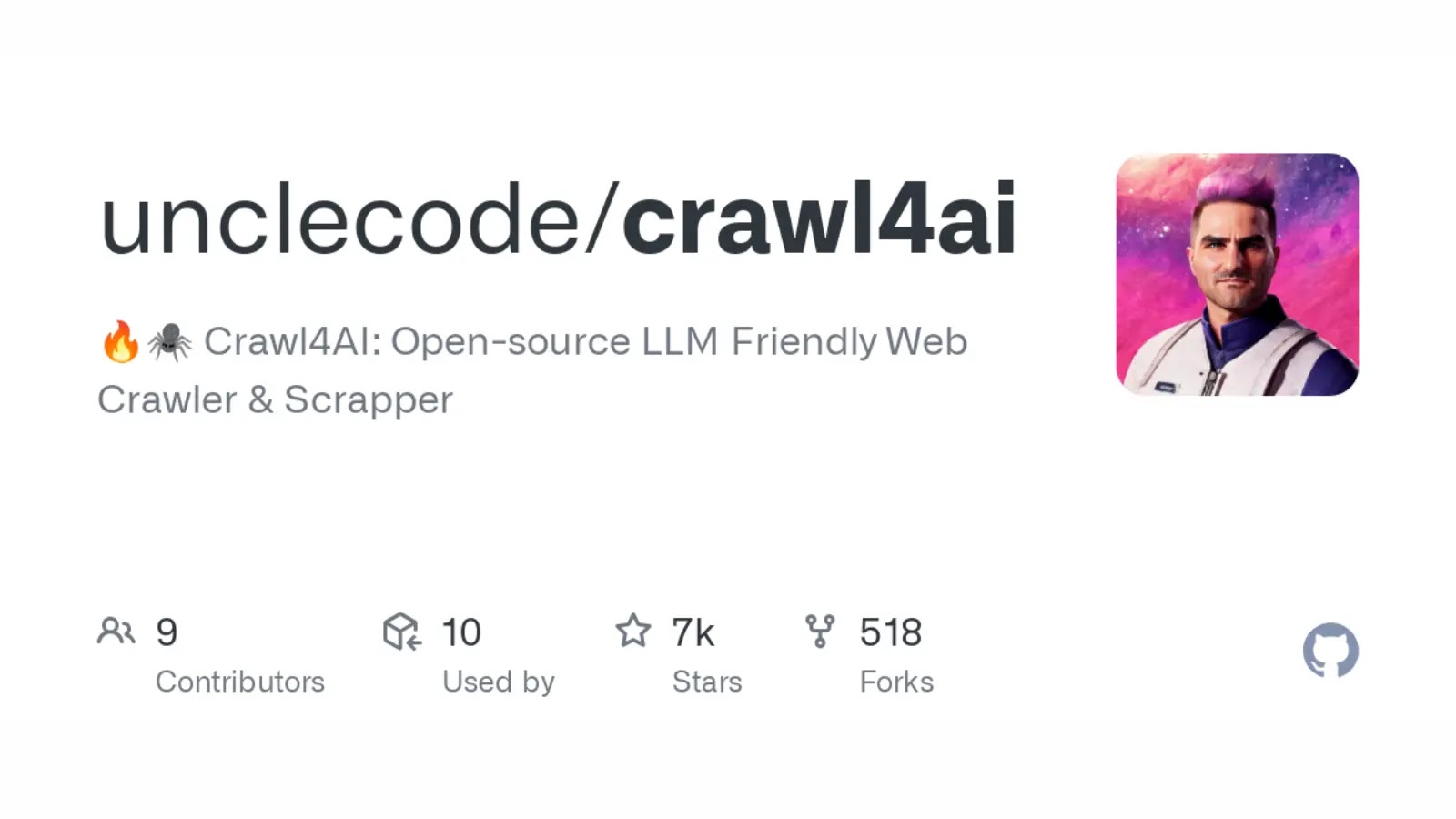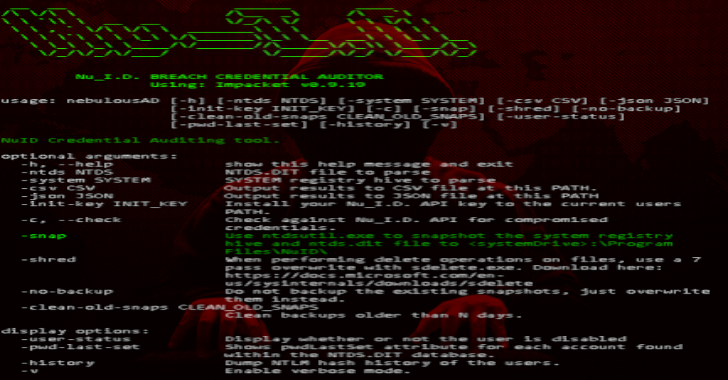NebulousAD automated credential auditing tool. I will be adding a wiki, documentation, etc. soon. Features:
- Will be adding a redact-by-group feature that will not dump hashes or check against the api for accounts in specific groups (such as domain administrators).
Installation
Simply download the precompiled release (requires no python interpreter), or build from source:
Requires Python2.7 (for now)
Run
git clone git@github.com:NuID/nebulousAD.git
Next, install with
python setup.py install
Then initialize your key. You can get your key by visiting: https://nebulous.nuid.io/#/register Once registered, click the button to generate your API key and copy it.
Now you can initialize them like so: nebulousAD -init-key <api_key>
You can now run the tool. If it can’t find your API key, you may need to restart your terminal session. The API key is stored in an environment variable. Logging out and back in also works.
Also Read – AIL Framework : Analysis Information Leak Framework
Example to dump all hashes and check them against NuID’s api: nebulousAD.exe -v -snap -check
NuID Credential Auditing tool.
Optional Arguments:
-h, –help show this help message and exit
-ntds NTDS NTDS.DIT file to parse
-system SYSTEM SYSTEM registry hive to parse
-csv CSV Output results to CSV file at this PATH.
-json JSON Output results to JSON file at this PATH
-init-key INIT_KEY Install your Nu_I.D. API key to the current users PATH.
-c, -check Check against Nu_I.D. API for compromised
credentials.
-snap Use ntdsutil.exe to snapshot the system registry
hive and ntds.dit file to :\NuID\
-shred When performing delete operations on files, use a 7
pass overwrite with sdelete.exe. Download here:
https://docs.microsoft.com/en-
us/sysinternals/downloads/sdelete
-no-backup Do not backup the existing snapshots, just overwrite
them instead.
-clean-old-snaps CLEAN_OLD_SNAPS Clean backups older than N days.
Display Options:
-user-status Display whether or not the user is disabled
-pwd-last-set Shows pwdLastSet attribute for each account found within the NTDS.DIT database.
-history Dump NTLM hash history of the users.
-v Enable verbose mode.
-snap
- The
-snapparam will automatically snapshot Active Directory (usingntdsutil.exe), and dump the ntds.dit file as well as the SYSTEM registry hive, if you have the privledges. You can dump this manually using any variety of methods or thentdsutil.exetool. - If dumping manually you can point to the files with
-system path\to\SYSTEMand-ntds path\to\ntds.dit. This is useful if you want to audit old snapshots.
–snap
- The
-snapparam will automatically snapshot Active Directory (usingntdsutil.exe), and dump the ntds.dit file as well as the SYSTEM registry hive, if you have the privledges. You can dump this manually using any variety of methods or thentdsutil.exetool. - If dumping manually you can point to the files with
-system path\to\SYSTEMand-ntds path\to\ntds.dit. This is useful if you want to audit old snapshots.
This requires an API key from https://nebulous.nuid.io/#/register. Once you have that and installed with -init-key, you can check the hashes against the NuID API. If you have specified -history it will also check each accounts password history to see if there was a password the user previously used that was compromised.
Adds output indicating whether or not the account is Enabled or Disabled in Active Directory
Adds output indicating the date the account’s password was last set. This can be useful in detecting violations of security policy of accounts that do not get reset automatically as defined in GPO, such as Service Accounts.
Also audit or dump the accounts stored password history
- Use a DoD 7 pass overwrite when wiping snapshots. This requires having sdelete.exe in your path. You can get that here:https://docs.microsoft.com/en-us/sysinternals/downloads/sdelete
- Just download that and place it in your
%SYSTEMDRIVE\Windows\System32\directory, or setup the environment variable.
Useful on cleaning backups when setting this application to run with the Task Scheduler. The SYSTEM hive and .dit file can be rather large in bigger domains and take a good amount of disk space. If you use Task Scheduler to make a daily audit, you can use this option like so: -clean-old-snaps 7 to only store 1 weeks worth of snapshots.
- If we detect an old snapshot, we back it up to
%SYSTEMDRIVE%\Program Files\NuID\snapshot-backupsby default. This is due to ntdsutil.exe requiring an empty directory. If you want to disable this backup and just wipe the current snapshot, use this argument. - And
-ntds path\to\ntds.dit. This is useful if you want to audit old snapshots.
This requires an API key from https://nebulous.nuid.io/#/register. Once you have that and installed with -init-key, you can check the hashes against the NuID API. If you have specified -history it will also check each accounts password history to see if there was a password the user previously used that was compromised.
Adds output indicating whether or not the account is Enabled or Disabled in Active Directory
Adds output indicating the date the account’s password was last set. This can be useful in detecting violations of security policy of accounts that do not get reset automatically as defined in GPO, such as Service Accounts.
Also audit or dump the accounts stored password history
- Use a DoD 7 pass overwrite when wiping snapshots. This requires having sdelete.exe in your path. You can get that here:https://docs.microsoft.com/en-us/sysinternals/downloads/sdelete
- Just download that and place it in your
%SYSTEMDRIVE\Windows\System32\directory, or setup the environment variable.
Useful on cleaning backups when setting this application to run with the Task Scheduler. The SYSTEM hive and .dit file can be rather large in bigger domains and take a good amount of disk space. If you use Task Scheduler to make a daily audit, you can use this option like so: -clean-old-snaps 7 to only store 1 weeks worth of snapshots.
If we detect an old snapshot, we back it up to %SYSTEMDRIVE%\Program Files\NuID\snapshot-backups by default. This is due to ntdsutil.exe requiring an empty directory. If you want to disable this backup and just wipe the current snapshot, use this argument.

.webp)








.webp)






.webp)





